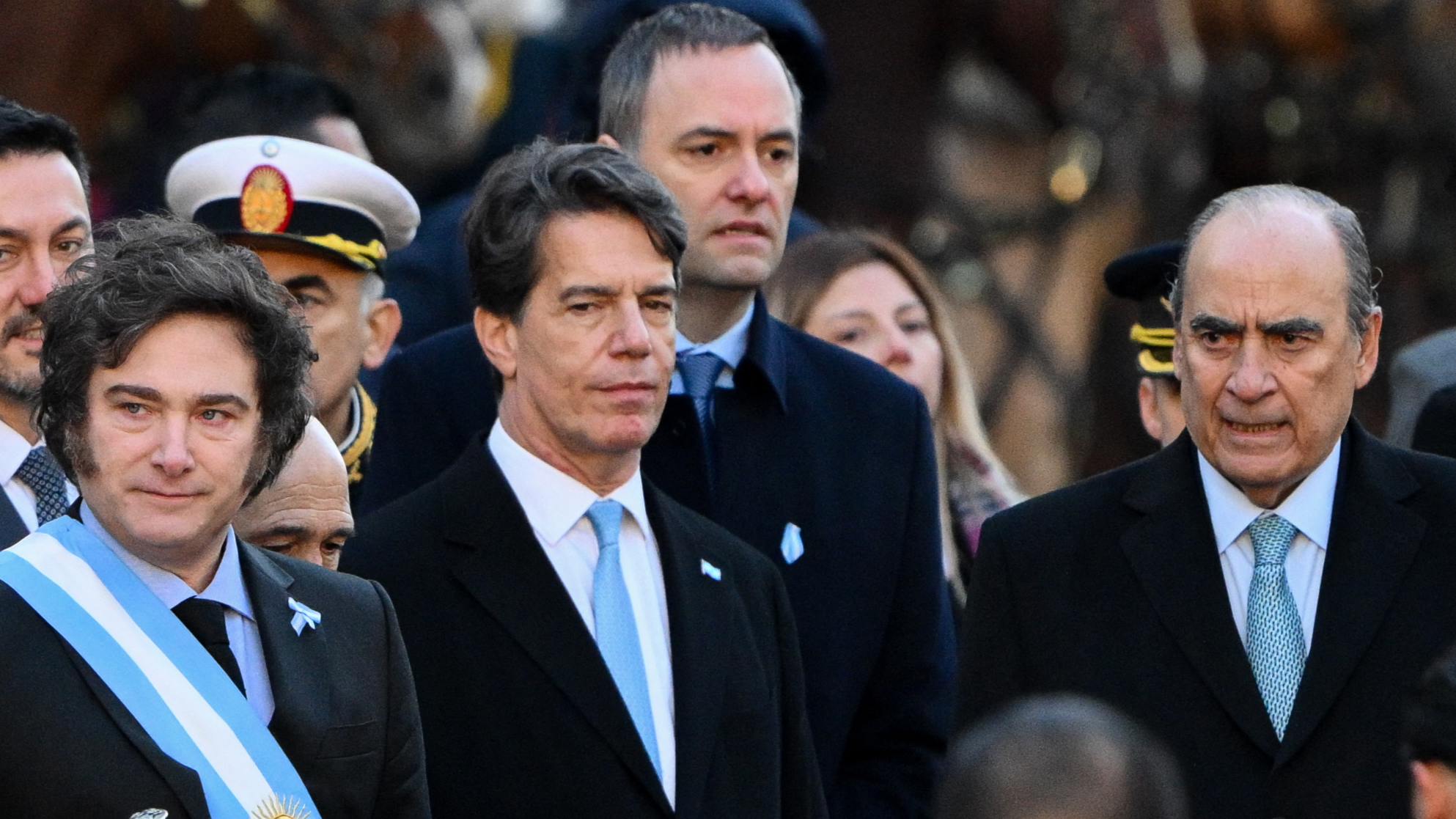
BUENOS AIRES — Guillermo Francos, the Argentine cabinet's new chief of staff, said Tuesday that his mission is to seek the congressional consensus needed to pass the reforms promoted by President Javier Milei.
Francos served as interior minister until he was appointed on Monday to replace Nicolas Posse, who resigned due to a "difference in criteria and expectations in the progress of the government and the tasks entrusted to it," according to the office of the cabinet chief.
The most important changes include removing Banco Nacion, the largest bank in the country, and its subsidiaries from the list of companies subject to privatization
The Argentine Senate is reviewing a bill titled "Bases and Starting Points for the Freedom of Argentines." This legislation includes a package of tax reforms and other initiatives deemed crucial by Milei's administration for revitalizing the country's troubled economy. The bill has already been approved by the Chamber of Deputies.
READ MORE: Argentine President Milei to relocate embassy to Jerusalem
"We are on a path to seek consensus to approve the Bases law," Francos said at a press conference at government headquarters, adding he was set to go to the Senate later in the day to discuss the bill with Vice-President Victoria Villarruel and the heads of political party blocs in the upper house.
The Bases Law, first presented in January containing more than 660 articles, was later modified by the Milei administration in order to get it approved. The most important changes include removing Banco Nacion, the largest bank in the country, and its subsidiaries from the list of companies subject to privatization.
The new version, containing 232 articles, was passed by the Argentine Chamber of Deputies in April.
READ MORE: Hyperinflation pressure grows on new Argentine government
The opposition, led by the Justicialist Party, rejects the reforms as violating labor rights, a view largely shared by unions and social organizations.


